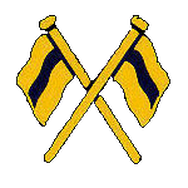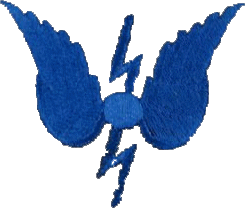|
|
|
|
|
DATE OF DESIGN | |
|
|
FREQUENCY RANGE | |
|
|
POWER SUPPLIES | |
|
|
POWER TO FINAL STAGE. | |
|
|
TYPE OF SET (VALVES USED) | |
|
|
WAVEFORM | |
|
|
METHOD OF PRODUCING OSCILLATIONS | |
|
|
WHERE USED/FITTED | |
The Type 79 were the very first RADIO DIRECTION FINDING (RDF) - (RADAR) equipments in the Royal Navy, and HMS Sheffield trialled the first of two sets only called the 79Y in September 1938, followed in January 1939 by HMS Rodney: both had power outputs of 15 - 20 kW. They proved a great success. An improved set, the 79Z (70 kW) was fitted into HMS Curlew in September 1939, a cruiser specially adapted as an AA ship. Thirty more 79Z's were to be fitted thereafter and as soon as possible.
This is covered under the RADAR section. Since this outfit, the very first Radar, all radar sets have carried a three digit number followed by an alphabetical suffix where necessary. |
|
FURTHER READING | |
|
|
IMAGES, PHOTOS, DOCUMENTS, SCHEMATICS ETC. | |
|
|
NOTES. | |
The Type 79 were the very first RADIO DIRECTION FINDING (RDF) - (RADAR) equipments in the Royal Navy, and HMS Sheffield trialled the first of two sets only called the 79Y in September 1938, followed in January 1939 by HMS Rodney: both had power outputs of 15 - 20 kW. They proved a great success. An improved set, the 79Z (70 kW) was fitted into HMS Curlew in September 1939, a cruiser specially adapted as an AA ship. Thirty more 79Z's were to be fitted thereafter and as soon as possible.
This is covered under the RADAR section. Since this outfit, the very first Radar, all radar sets have carried a three digit number followed by an alphabetical suffix where necessary. |


